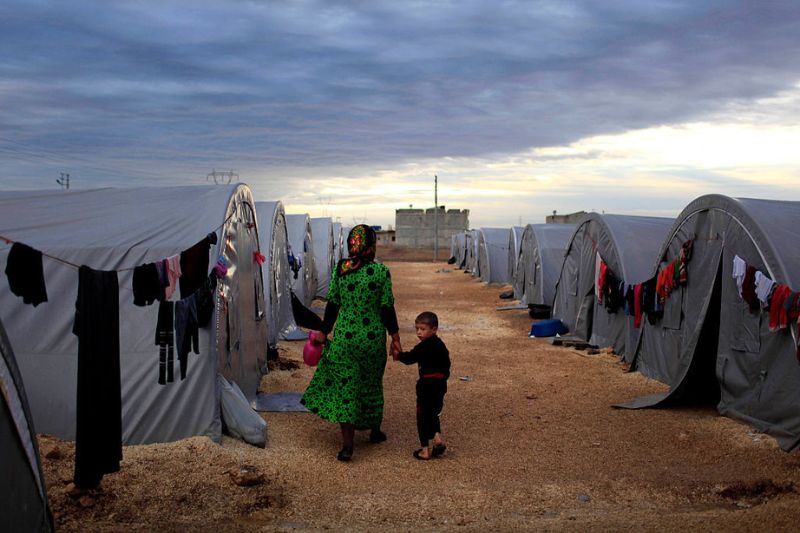This year it has been hard not to feel gloomy about the state of the world. Even the days and weeks dedicated to noble causes read more like the gravestones on a battlefield than like celebrations of victories won. Consider, for example, the International Day of Diplomacy for Peace, World Environment Week, Children’s Week, and National Reconciliation Week. The music appropriate to such observances is not the Triumphal March but the Last Post.

If you care for refugees, if you are yourself a refugee, World Refugee Week might seem to be similarly funereal. It is easy to be overwhelmed by numbers and bad news. Three million people have been displaced in Myanmar, nine million people, more than a third of Australia’s population, have been driven from home in Sudan, a whole people has been displaced in Gaza, people have fled violence, starvation and poverty throughout the world, and governments in wealthy nations have increasingly treated refugees as less than human. Nauru, Australia’s camp for people who arrive on Australian territory to seek protection, and a proven seedbed for mental illness, is filling again. Bad news comes in spate; encouraging signs are like beacons placed in a coal mine.
And yet. This year the theme of Refugee Week invites us to turn away from the tyranny of numbers and politics and to bring into our hearts the persons who make up these numbers. They are countless, but like all other persons they cannot be defined in numbers. Nor can they be defined by their condition as refugees. They are human beings like us who belong to families, their hearts are free, and they long for the freedom to live human lives, to work and follow their dreams, and to live generously.
Refugee Week draws our minds and hearts away from the tyranny of numbers to the lives of the women, men and children whom we call refugees. It invites us to see them from inside. We may then be horrified by the stories of their flight from the places and communities they called home. We may be awed by the passion for life and freedom that led them to seek life elsewhere, may celebrate the resilience that they have shown as they walked such a hard road, and may wonder at their devotion to family in the face of all the crises that test it.
Refugees also invite us to celebrate the kindness of strangers whom they met along the way: the people who offered them shelter and food, who welcomed them, helped them to settle in a strange new country, and reached out to them in friendship on their long journey. These surely are the gifts that we would like our families to receive if we fell on hard times. They are also the qualities that we would like think are characteristic of our own nation. Refugee Week invites us to celebrate these unassuming fellow Australians who treat others, not as strangers nor as a category, but as sisters and brothers.
When we enter the life of refugees from within and see their extraordinary stories of suffering, resilience, love of family and the importance of small gestures of kindness in their lives, we have a lens through which to judge the rejection of them by wealthy nations like our own. Dumping people who seek protection in poor nations like Nauru, PNG and Rwanda, threatening to deport them or seize them out of our community and lock them in internment camps, and arranging to deport their family members if they do not agree to leave our nation voluntarily, find their proper place in a horror show of human meanness.
This refugee week, however, is not a time to curse the darkness. There is enough of that in our world. Refugee week is a time to turn our eyes to the myriad lights that shine in refugees’ eyes, to the candles of their generosity of spirit in the face of so much rejection, and to the pools of light surrounding their families. It also calls us from cursing the darkness to light our own candles as we reach out to people who seek our protection and plead their cause.
The theme of Refugee Week in 2024 focuses on freedom and the family, the threats to whom are the reasons why so many refugees left their home. As we reflect on the unextinguishable light of hope that shines in their eyes, we may also recognise the lights in Australia lit by people who visit refugees, help them, advocate for them, represent them in legal cases and keep them in their prayers. If we are isolated it is not easy to keep candles alight in gales of hostility and apathy. Refugee Week is a time to take pride in and to join the great crowd of witnesses who embody the best of our nation and world.
Andrew Hamilton is consulting editor of Eureka Street, and writer at Jesuit Social Services.